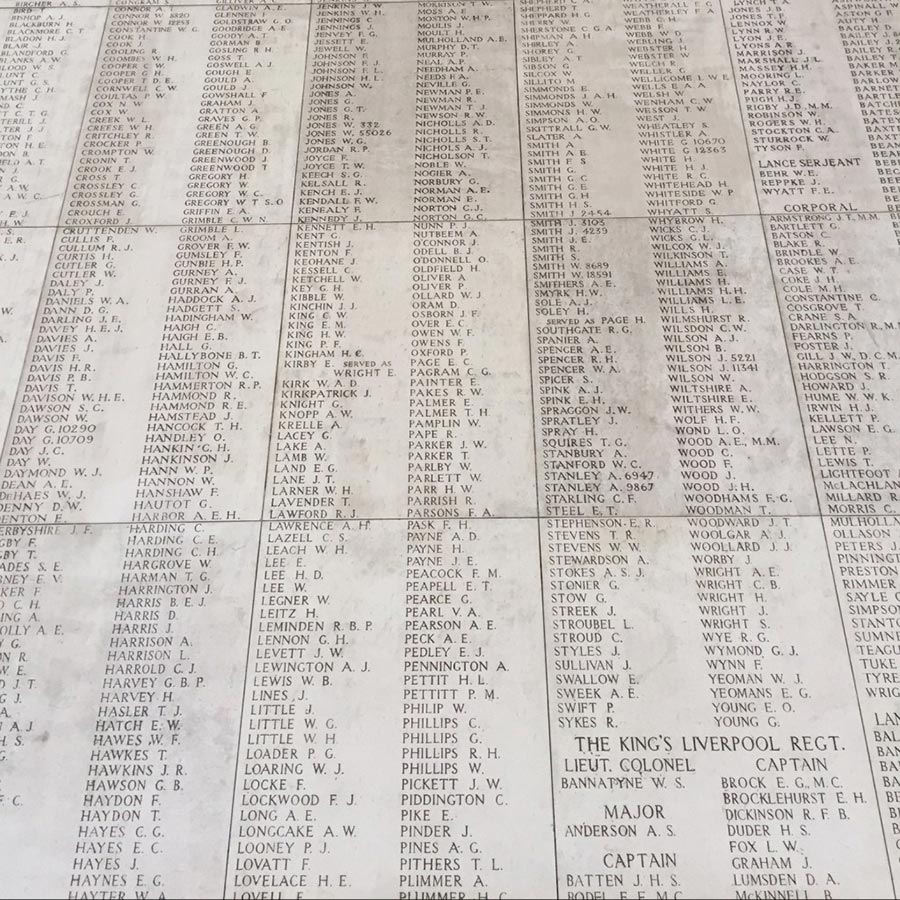The Missing of the Great War
Belgian Flanders, 2017
It was a test. She asked, Are they here or not?
Because the land is flat it is hard to see.
The men may be hidden in that empty space.
The canal was a serious obstacle.
The banks of the dykes are bordered with willows.
The lyric moment at its best.
At the edge of each moment I thought I saw movement.
It was a test. She asked, Are they here or not?
The lines kept changing but not by much.
Because the land was flat it was hard to see.
The men may be hidden in that empty space.
The banks of the dykes are bordered with willows.
You can read this, she said.
The lines ran right through this corn field.
Corroded buttons, cap badges, numbered disks.
At the edge of each moment I thought I saw movement.
When the sun came out I was surprised.
I asked, Should I just go home?
The canal was a serious obstacle.
The lyric moment at its best.
The lines kept changing, but not by much.
It was a test. She asked, Are they here or not?
Gently, metal on metal. Something on its own terms.
The lyric moment at its best.
The lines ran right through this corn field.
The banks of the dykes are bordered with willows.
The canal was a serious obstacle.
You can read this, she said.
Notes on Sources
The form of this poem is modeled on “Glyph,” by Ann Lauterbach. Under the Sign. New York: Penguin, 2013. Lines in the poem draw from the following sources: Ypres 1914: An Official Account Published by Order of the German General Staff. G. C. W, Trans. 1919. London: The Imperial War Museum and Nashville, Tennessee: The Battery Press, 1994. 16, 128. Machik’s Complete Explanation: Clarifying the Meaning of Chöd, Sarah Harding, Trans. Ithaca, New York & Boulder, Colorado: Tsadra Foundation, Snow Lion Publications, 2003. 130-131. Rios, Alberto. “Some Thoughts on the Integrity of the Single Line in Poetry.” Rosko, Emily and Anton Vander Zee, Eds. A Broken Thing: Poets on the Line. Iowa City, Iowa: University of Iowa Press, 2011. 208-209.
